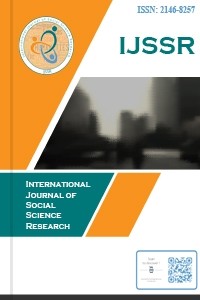Proof of Vital Events by Possession of Status and Its Impact on Civil Registration in Ethiopia
As of 2012 civil registration has become mandatory across Ethiopia. Furthermore the 2017 bill which slightly brought some changes to the 2012 bill has mandated the establishment civil registration office at the lowest administrative level (kebele). The bill also authorized the registration of all vital events that occurred before the adoption of the new law. Despite this development, the family laws of the country and the judicial system still practice by a rule which authorizes proof of vital events by possession of status as an alternative to a document issued by a civil authority. The Ethiopian federal family law and different regional family codes have included a provision that recognizes proof of vital events by possession of status. Giving such a legal option however makes the civil registration law less effective as people rely on the latter rather than getting a document. This short article is shading light on how proof of vital events by possession of status negatively affects civil registration turnout in Ethiopia. This article therefore argues that this rule in the family law needs to be repealed as it affects the civil registration system.
Anahtar Kelimeler:
Civil registration, vital events, possession of status
___
- Muhumad, A. (2019). Impediments to Civil Registration: The case of Somali Regional State. Sosyal Siyaset Konferansları Dergisi/Journal of Social Policy Conferences (77), 287-306. doi:10.26650/jspc.2019.77.0020
- Oakeshott, N. (2014). Civil Registration, Nationality and Human Rights. Retrieved Feb 19, 2021, from getinthepicture.org: https://getinthepicture.org/sites/default/files/resources/Information_Note_E_%20Civil_Registration_Nationality_and_Human_Rights_0.pdf
- Ziemele, I. (2007). Article7. The Right to Birth Registration, Name and Nationality, and theRight toKnow and Be Cared for by Parents, in:A Commentary on the United Nations Conventionon the Rights of the Child. Leiden: Martinus Nijhoff Publishers.
- Yayın Aralığı: Yılda 2 Sayı
- Başlangıç: 2012
- Yayıncı: Şahin ORUÇ
Sayıdaki Diğer Makaleler
FINANCIAL EFFECTS OF COVID-19 PANDEMIC ON BIST TOURISM INDEX
Bağlam Temelli Kelime Öğretiminde Tanıklamalardan Yararlanma: 3 Yazardan Tanıklama Örnekleri
ALAN DEĞİŞİKLİĞİ YAPAN SINIF ÖĞRETMENLERİNİN YAŞADIĞI PROBLEMLER
Türkiye’de Reel Efektif Döviz Kuru ile Dış Ticaret Dengesi Arasındaki İlişkinin Ekonometrik Analizi
TÜRKİYE’DE KATILIM BANKALARI İLE KAMU BANKALARININ PERFORMANSLARININ KARŞILAŞTIRILMASI
Metin AKTAŞ, Zabiullah DARWİSH
Proof of Vital Events by Possession of Status and Its Impact on Civil Registration in Ethiopia
Lider-Üye Etkileşimi ve Örgütsel Bağlılık İlişkisi: Spor Kurumları Çalışanları Üzerinde Bir İnceleme
